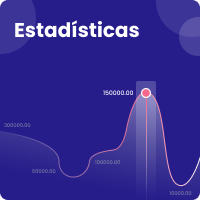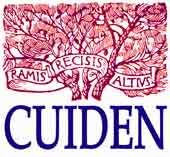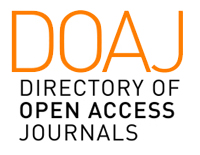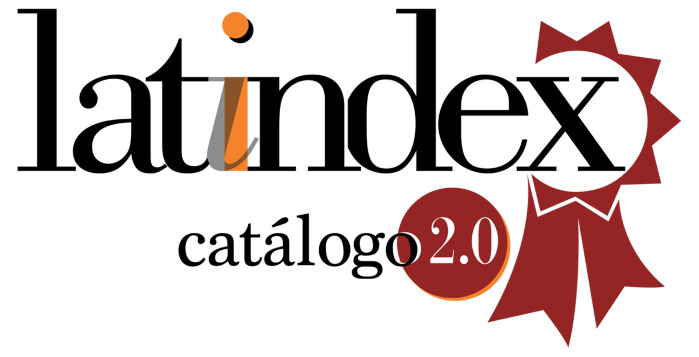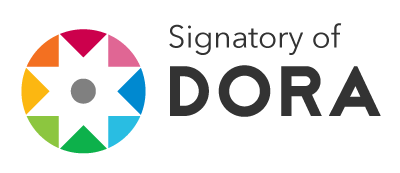About the Journal
The Revista Ocupación Humana (Human Occupation Journal, in English) is the body of scientific dissemination of the Colombian College of Occupational Therapy- CCTO, a professional association founded in 1972 [1] that brings together Colombian occupational therapists and exercises different functions for the local, regional and global development of the occupational therapy profession [2]. The CCTO is a member of the Latin American Confederation of Occupational Therapists - CLATO and of the World Federation of Occupational Therapists - WFOT.
The mission of the Human Occupation Journal is to ensure that occupational therapists and professionals from other disciplines, mainly from Colombia and Latin America, are availed to and can disseminate original research, as well as significant experiences that contribute to the development of occupational therapy and related studies in human occupation, the advancement of science, and the impact of its action on society.
The Human Occupation Journal covers the field of knowledge of human occupation as it relates to disability, human development, rehabilitation, health, and well-being; therefore, its contents are of interest to occupational therapists and other professionals who have been involved with studies in human occupation, also known as occupational science. It is the only scientific journal of occupational therapy in Colombia. A pioneer in Latin America, it was created in 1984 under the name ‘Acción’ (Action in English) until becoming Human Occupation in 1987. Also, until 2016 the journal circulated in printed format with the ISSN: 0122-0942; thereafter it became an open access electronic publication identified with the ISSN: 2590-7816 (online) and whose contents are protected with a Creative Commons Attribution-NonCommercial-ShareAlike 4.0 license. This transformation is aimed at aligning the Journal with current trends in scientific communication, and above all, promoting access to, and creation and use of high quality knowledge by the community to which it is addressed. Its periodicity is biannual.
The Ocupación Humana Journal does not mandate that authors pay any type of fee or Article Processing Charges (APC) for the application or evaluation of their articles. Access to published articles is equally open, that is, it does not require any registration, it does not impose any type of ban on the articles or charges to its readers.
The Journal’s editorial board is made up of the editor, and editorial and scientific committees; it also has a technical support group for its publication. The members of the Journal's board are specially selected for being occupational therapists with a recognized research, academic, and professional trajectory. Ideally, they must have a master's or doctorate degree and have substantial academic production reflected in publications and in their recognition by the professional community. In the case of Colombian occupational therapists, it is a requirement that they be active members of the CCTO and it is desirable that they have demonstrated a high commitment to their professional membership duties.
The Human Occupation Journal accepts only original and unpublished works written in Spanish, English or Portuguese, according to the origin of the authors, privileging those derived from research. It publishes the following types of contributions: original research articles, review articles, reflection articles derived from research, short articles, case reports, bibliographic reviews, thematic reviews, editorials, letters to the editor, translations, and documents of historical value. The Journal permanently adheres to copyright laws. Possible violations that are detected in the submitted articles will be analyzed first by the editor and the Editorial Committee, with the support of available technological resources, among them, the Ithenticate software. If necessary, a second analysis, as well as possible sanctions, will be put to consideration of the National Directive Council of the Colombian College of Occupational Therapy.
Only the editorials, letters to the editor, and historical documents are exempt from the arbitration process. These documents are reviewed by the editor or another member of the Editorial Board before publication. The other types of articles adhere to the following process: once they are submitted, the editor verifies compliance with minimum referral requirements (author’s personal data and letters of statement declaring original authorship, assignment of rights and conflicts of interest). If the submission complies with these minimum requirements, the manuscript is then revised by the Editorial Committee and the Scientific Committee, who consider its formal characteristics, originality, structure, scientific quality, and the relevance of its publication in the Journal. If found to be relevant and in accordance with the editorial concepts, adjustments to the text may be requested before it is considered for peer-review. In this instance, a text can be rejected if the evaluators conclude that it does not respond to the purposes or the field of knowledge of the Journal.
Subsequently, the manuscript is sent to two national or international peers, experts in the thematic field it addresses. Ideally, the peer-reviewers are external to the journal; however, in some cases, a member of the Scientific Committee or the Editorial Committee, for his/her expertise, acts as a peer-reviewer. The peers evaluate the quality, relevance, and scientific rigor of the text; they can comment on the article and issue opinions based on their expertise. In case of disputes, the text is sent to a third peer-reviewer. Based on all the concepts issued, the editor decides: accepted without revisions, accepted with revisions, or rejected. In case the article is accepted with revisions, the observations are sent to the authors to make the required adjustments, who then must forward the corrected text within the established term so that it can issue a new peer-review, based on which the article can be accepted or rejected.
The arbitration process is carried out blindly for the authors by the Editorial Committee (the members of the committee know the identity of the authors but the authors do not know the identity of the Editorial Board member who is reviewing their work), and double-blinded for the Scientific Committee and the peer-reviewers (the identity of the authors is unknown to the reviewers, and that of the reviewers is unknown to the authors).
The Human Occupation Journal follows the "Guide Document of the Permanent Service of Indexing Colombian Science, Technology and Innovation Journals" (Colciencias, 2010), the "Guide of Good Practices for Academic Open Access Journals"(Rojas & Rivera, 2011) and adheres to the COPE guidelines and codes of conduct. With this, it expresses its ethical commitment in the editorial process and guarantees transparency in the publication of contributions.
For the use of descriptors (keywords) for the indexation of articles, the journal uses those of Descriptors in Health Sciences - DeCS, the Medical Subject Headings – MeSH, and the Unesco Thesaurus. For citations and bibliographical references, the journal complies with the standards of the latest published version to date of the American Psychological Association (APA).
Given that the Journal uses the Open Journal Systems (OJS) platform, authors have to register and manage their submissions through it.
Among its purposes, the Journal seeks to contribute to the training of authors in the processes inherent to scientific publication, considering that in Colombia and Latin America, the number of publications in Occupational Therapy is low. For this reason, meticulous and detailed evaluation processes are offered to the authors with feedback, even if their manuscripts are not finally accepted. The revisions and comments issued by the peer-reviewers are always made available to the authors, reserving in all cases the identity of the former.
The Human Occupation Journal values the preservation of the documents it publishes and recognizes their scientific and historical value as heritage of the Occupational Therapy profession and of the Colombian nation. As such, the journal implements the following long-term preservation and guarantee mechanisms, to ensure the availability of published articles:
- Since 2018, progress has been made in the digitization of the Journal's historical archive (volumes published on paper between 1984 and 2016). To date, 191 articles that were published in 25 issues during the period from 1996 to 2016 have been digitized and made available to the public on the Journal's website and in open access. Each of them was assigned a unique and permanent identifier DOI, which guarantees the unique location of the resource, even when the journal changes its URL, as well as interoperability with other platforms, repositories, or search engines.
- All published articles, including those from the historical archive that are digitized, are preserved in the Pórtico system, one of the most prestigious digital preservation agencies in the world.
- In addition to the legal deposit of the issues published on paper between 1984 and 2016, which was made in the National Library of Colombia, the Library of the National University of Colombia and the Library of the National Congress, the Human Occupation Journal has been advancing the digital deposit of the documents published in this format in the National Library of Colombia, the entity in charge of preserving and cataloging the country's bibliographic and documentary heritage.
The Human Occupation Journal is a recognized publication in the field of Occupational Therapy in Colombia and Latin America, it is currently indexed in the international databases and directories Lilacs, DOAJ, Cuiden and Redib, and included in the Directory and Catalog 2.0 of Latindex.
In addition to what was mentioned above about legal deposit, several Colombian occupational therapy schools have in their libraries the collection of the journal in hardcopy form. The transition to electronic access has further increased its visibility and availability. Since this happened, in June 2017, more than 78,000 visits from 140 countries have been registered.
[1] It was constituted in 1972 as the Colombian Association of Occupational Therapy, in 2011 it changed its name to Colombian College of Occupational Therapy in compliance with current regulations and looking forward to assuming public functions delegated by the Colombian government.
[2] For more information about the Colombian College of Occupational Therapy visit www.tocolombia.org

